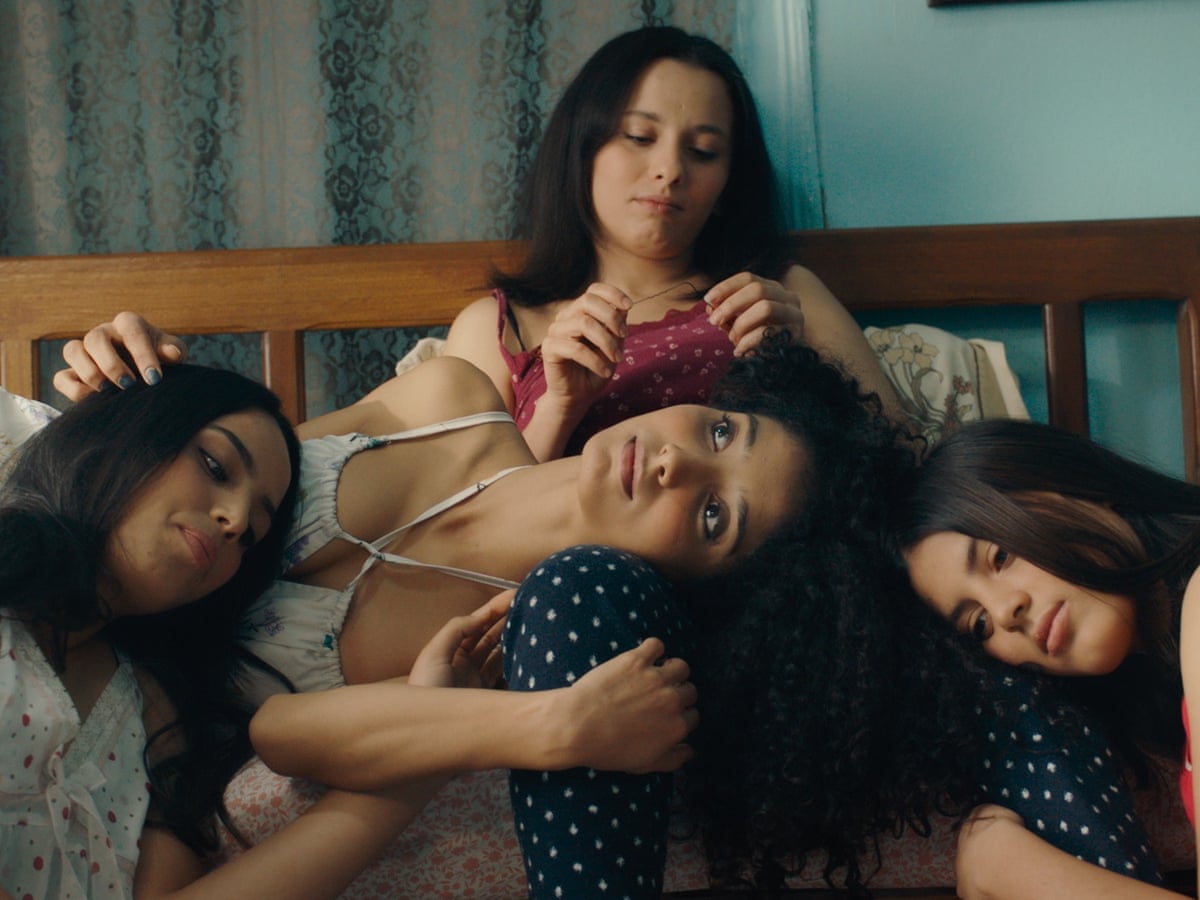Among the post 9/11 terror panic, few radical groups are as feared as ISIS. At the height of their powers they seized control of significant portions of territory across Northern Africa and the Middle East and waged a murderous campaign against those who did not conform to they draconian laws. Perhaps one of the most confounding elements of the rise of ISIS are its voluntary female members, who submit to a life of subjugation. One such example is intimately explored in Kaouther Ben Hania's documentary "Four Daughters", in which a Tunisian mother processes the loss of her two oldest daughters to the ISIS cause.
The subjects of "Four Daughters" are Olfa and her two remaining daughters Eya and Tayssir. As Olda prepares to tell the story of her family, Ben Hania sets the premise of the film, wherein professional actresses will portray the lost sisters Rahma and Ghofrane, as well as another who steps in for Olfa during particularly difficult moments. As all six women participate in this effort to bring the past back to life, the filmmaking process illuminates a wealth of wisdom and understanding amid the painful memories.
Indeed, as this remarkable collaboration unfolds, the storytelling reveals both personal and broader truths. Probing the past to understand the present, Olfa begins by recalling the male harassment her mother faced and her own unfullfilling and dispassionate marriage. Later, as she recalls her own volatile motherhood, a legacy of patriarchy and misogyny is revealed, profilerated by society and more significantly, Olfa herself.
In confronting Olfa's complicity and guilt in her daughters' eventual rebellion and disillusionment, Ben Hania's unique docudrama style proves to be ingenius. On a formal level, the film features stunning mise-en-scène. Furthermore, it's also a triumph of casting (as incredulously acknowledged throughout). And as the actresses and the central women work together, their genuine connection blurs the lines between reality and acting. Rather than mere reenactments, the women form a sincere sisterhood in which they challenge the warped psychology that failed Olfa and society as a whole.
Ultimately, "Four Daughters" serves as a devastating cautionary tale for other mothers and daughters in similarly conservative societies. In addition, it's a testament to the power of filmmaking, using a beautifully collaborative process to directly address a harmful cycle of oppression afflicting women. It may not tear down the pillars of partiarchy, but in its deeply personal way, it offers healing for its subjects and audiences alike.
| Tweet |








No comments:
Post a Comment